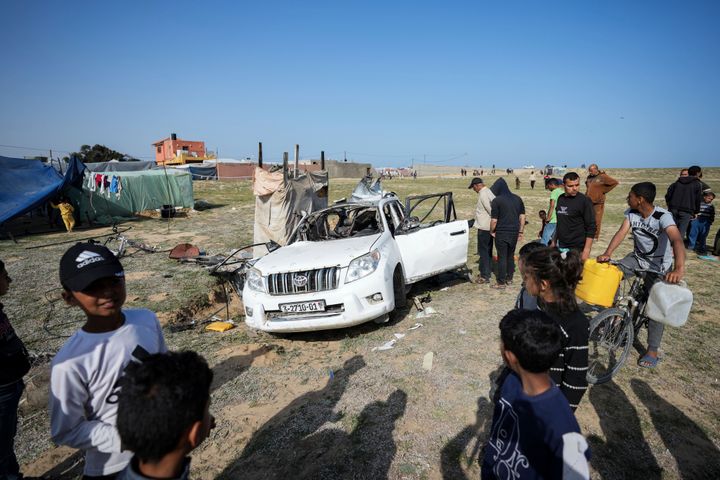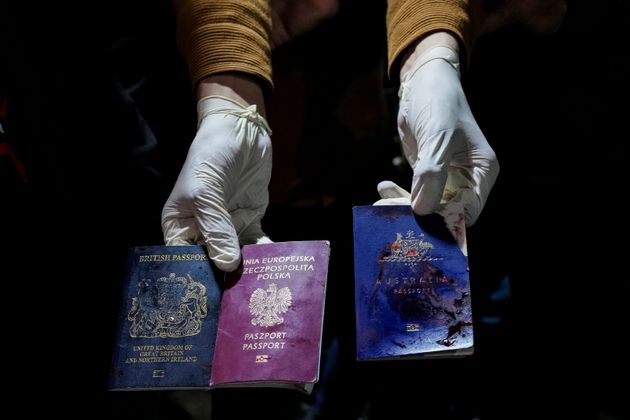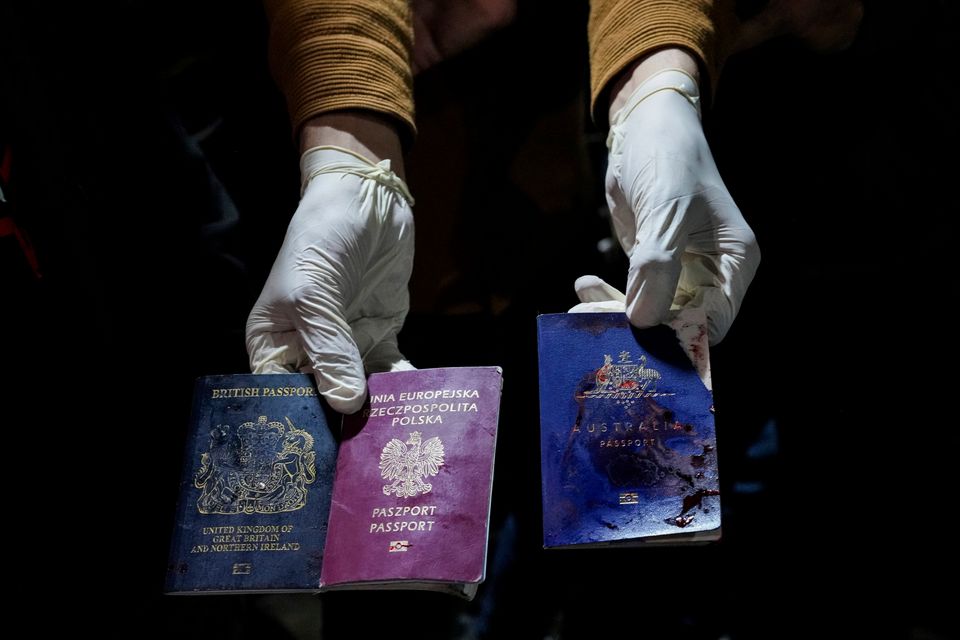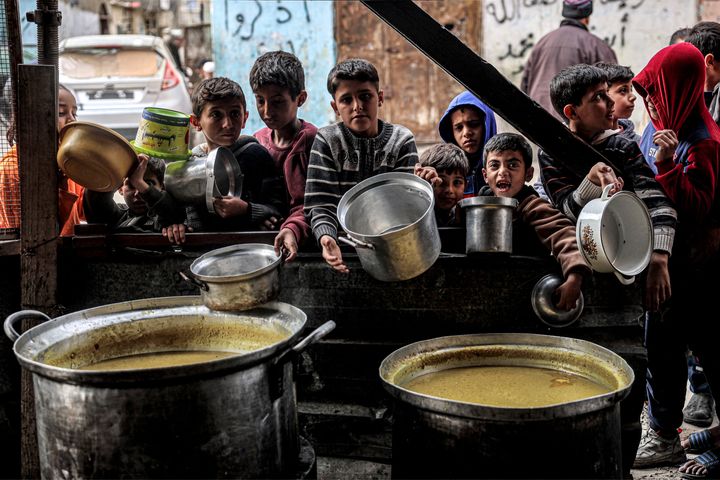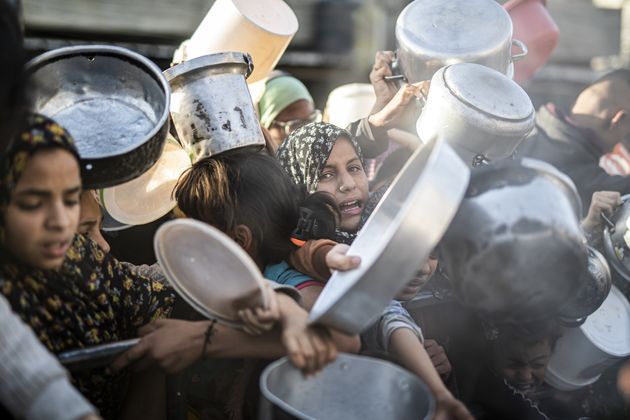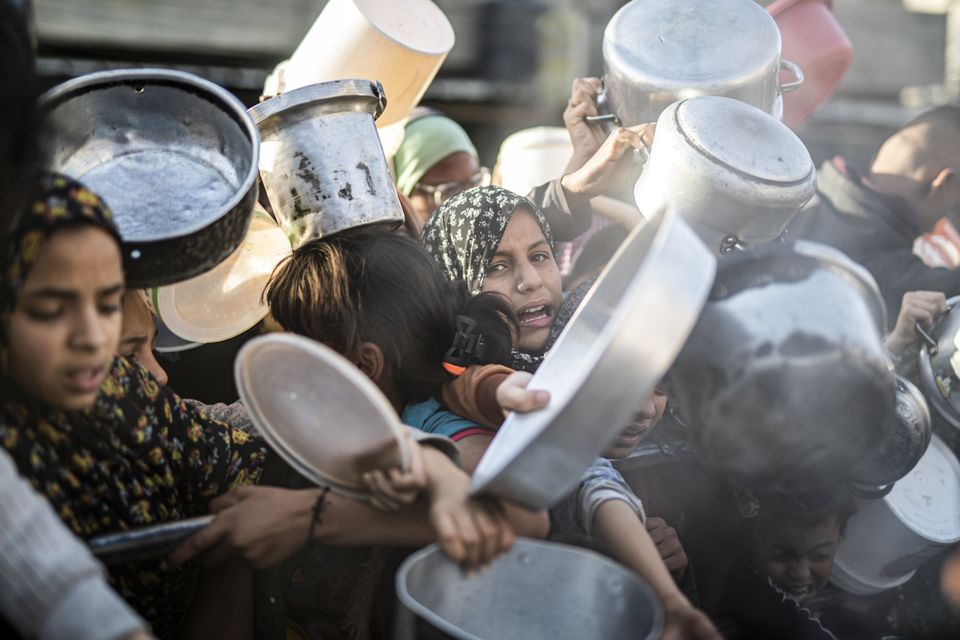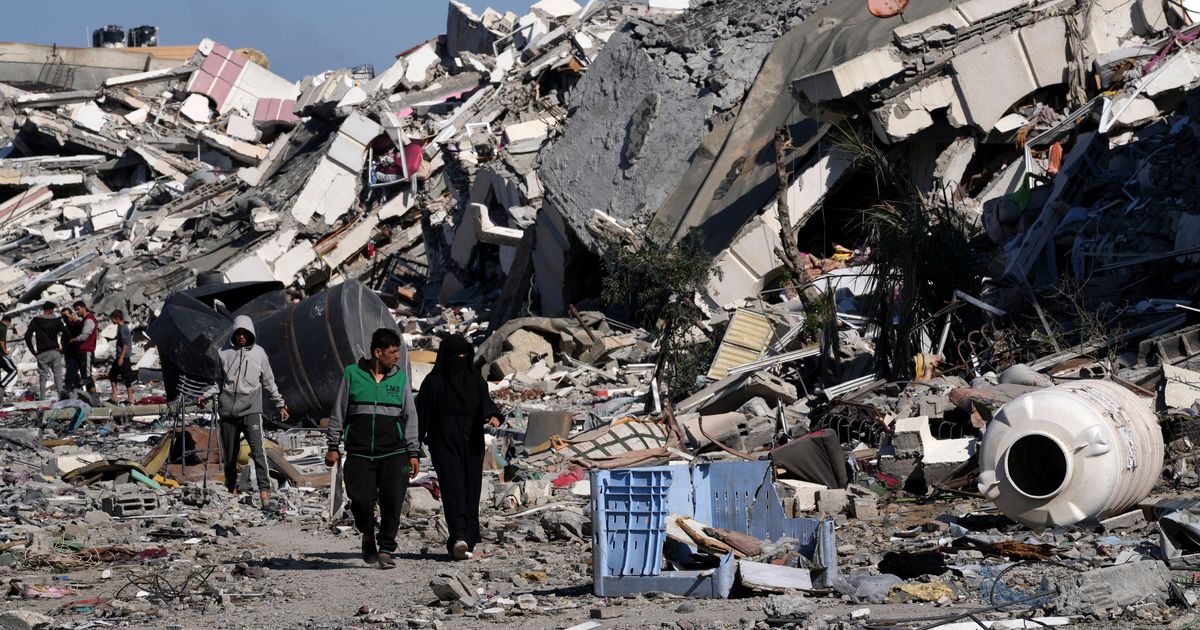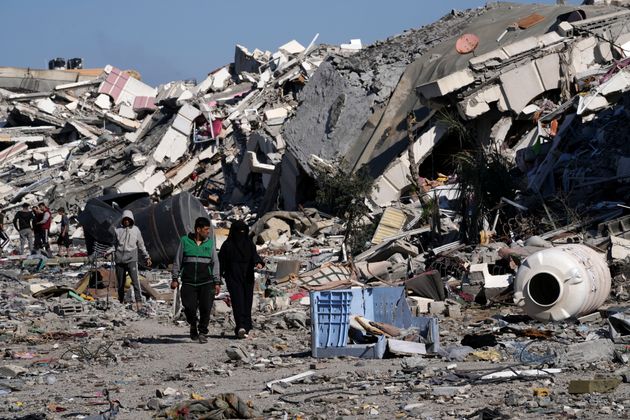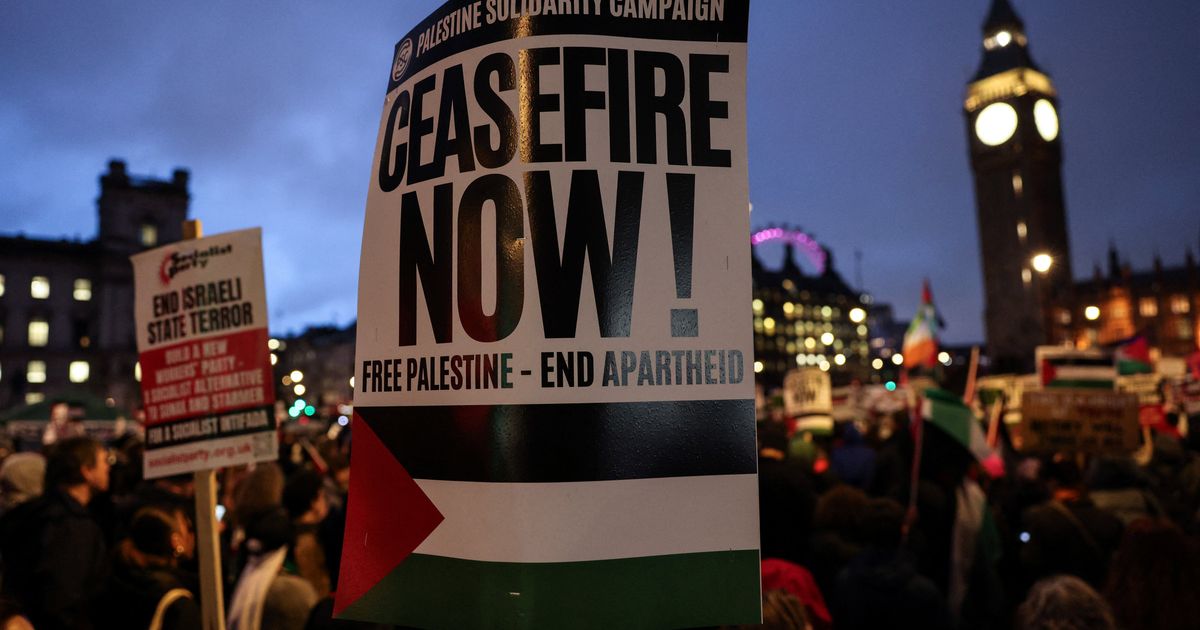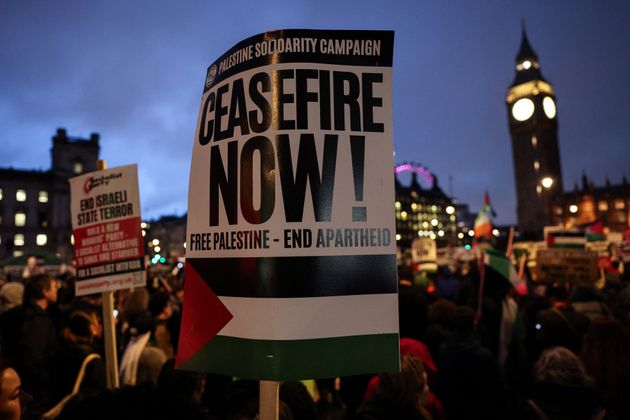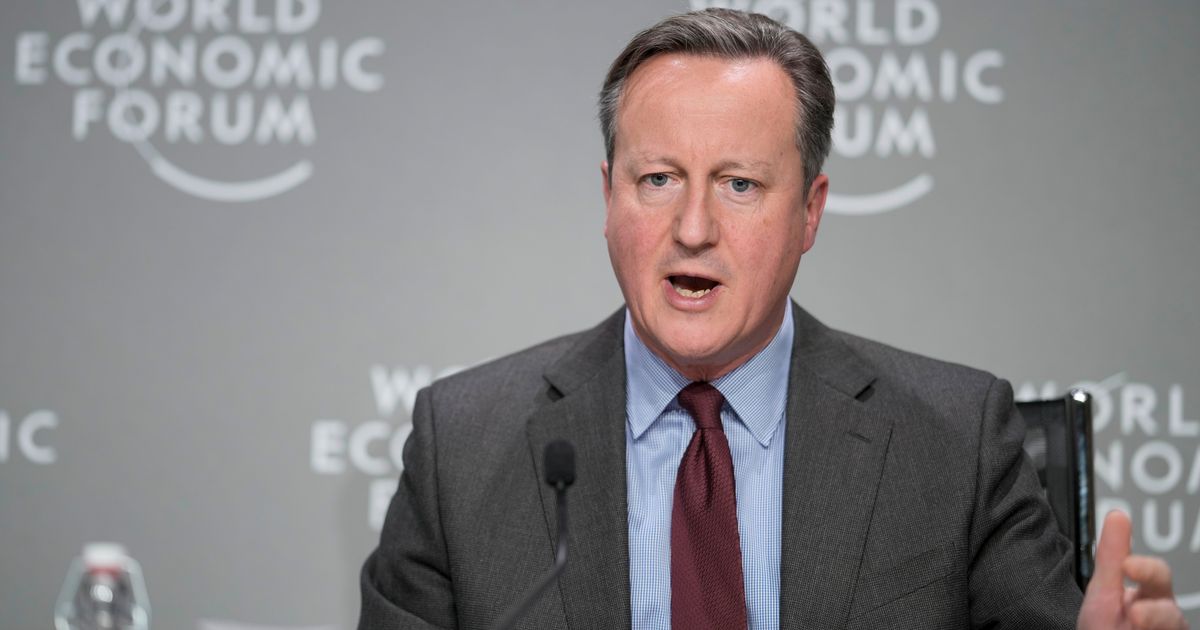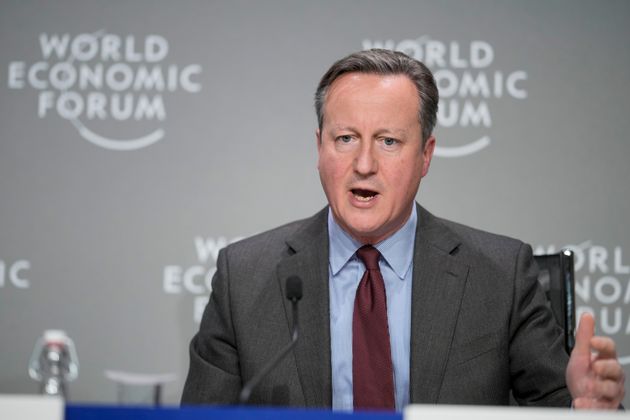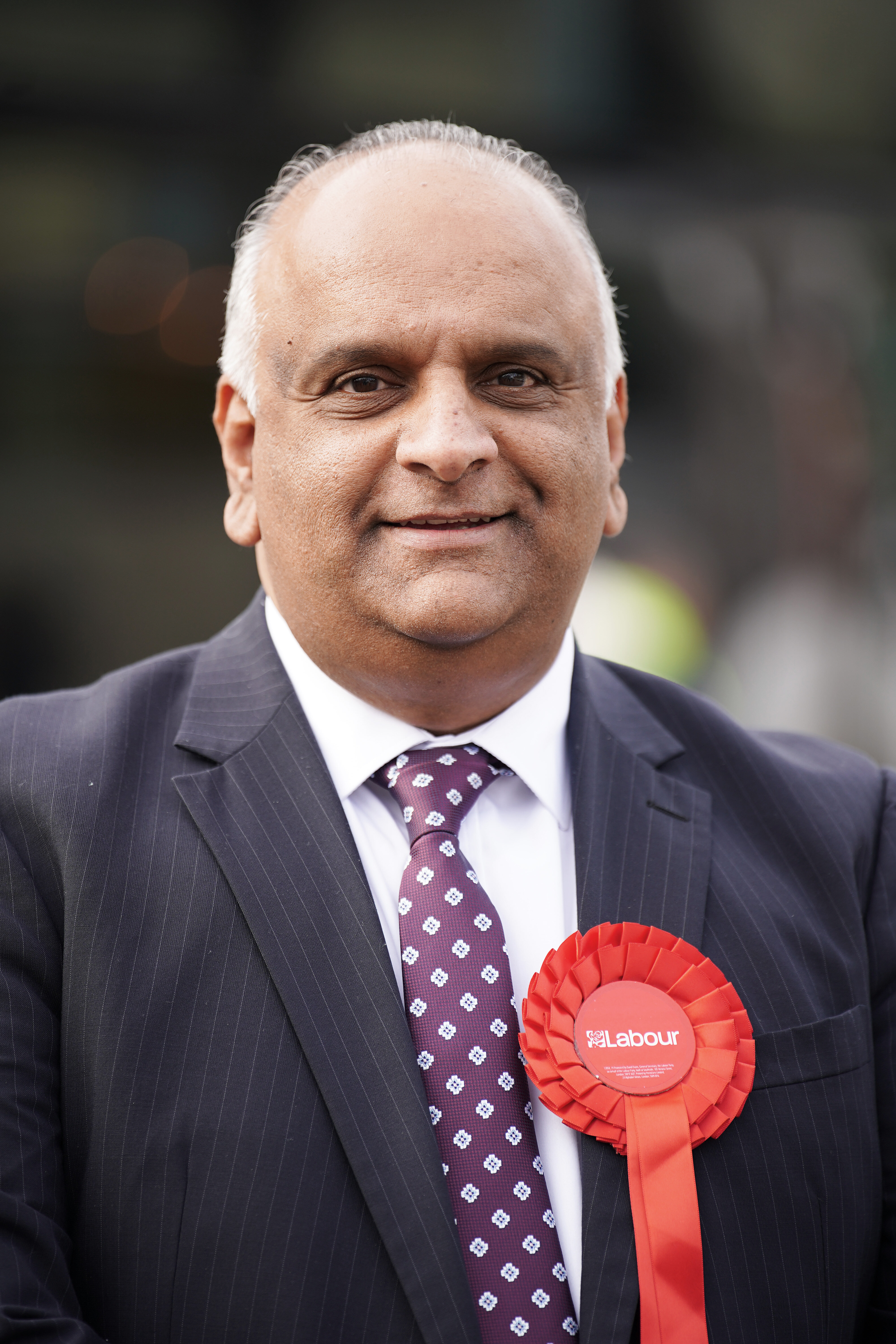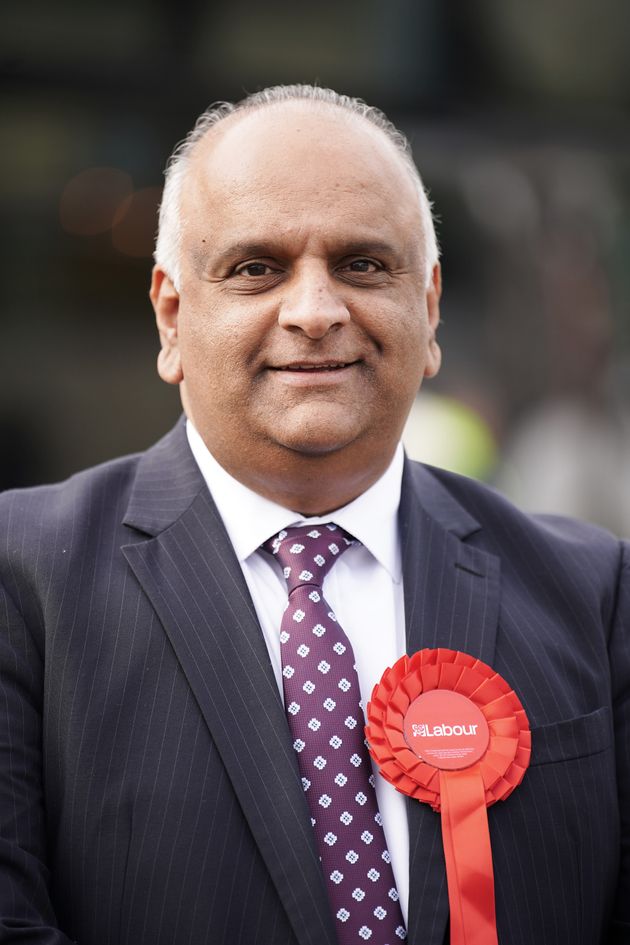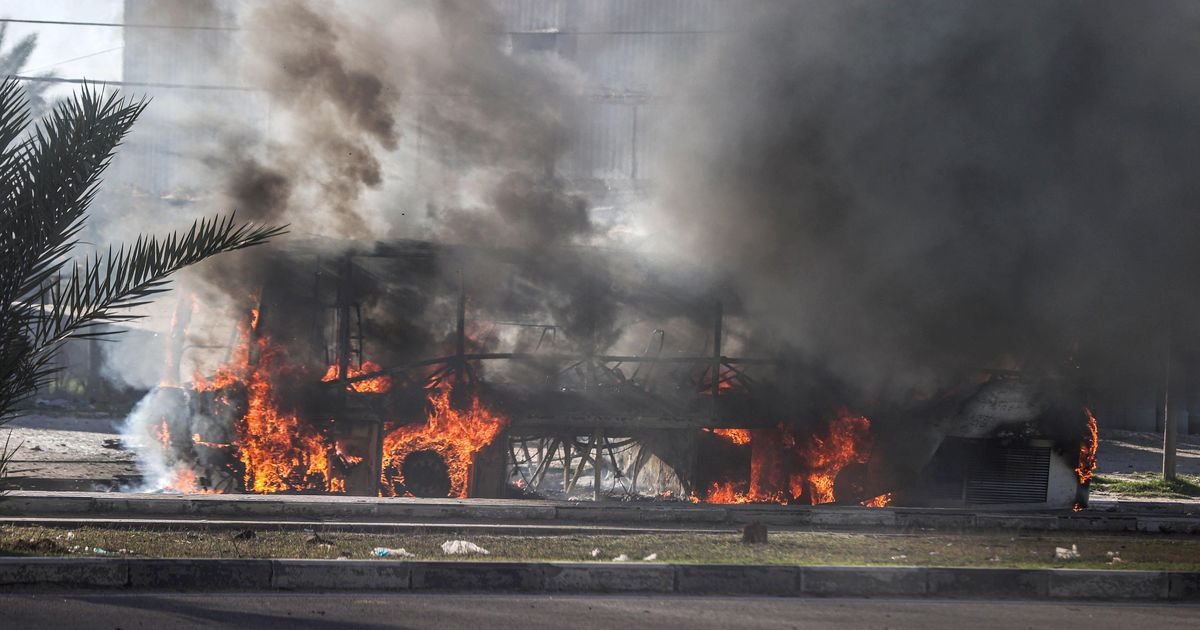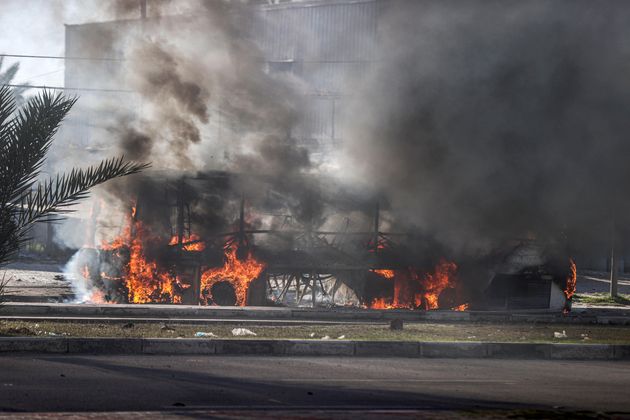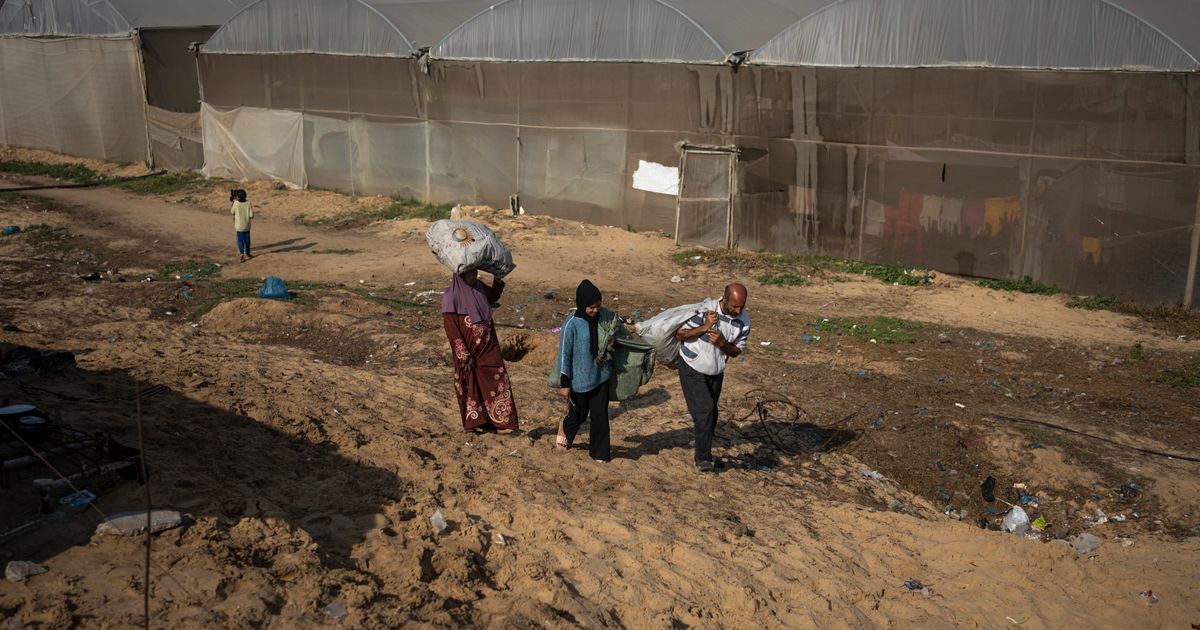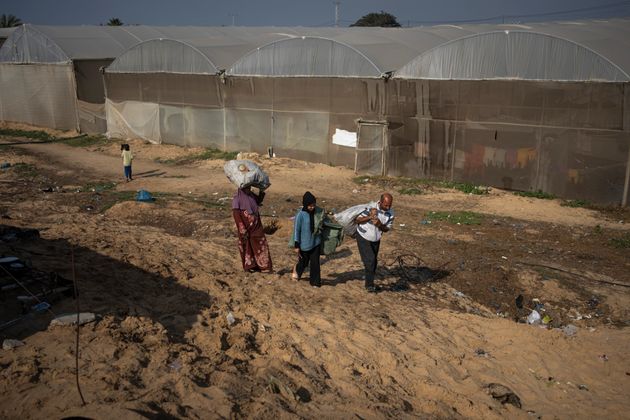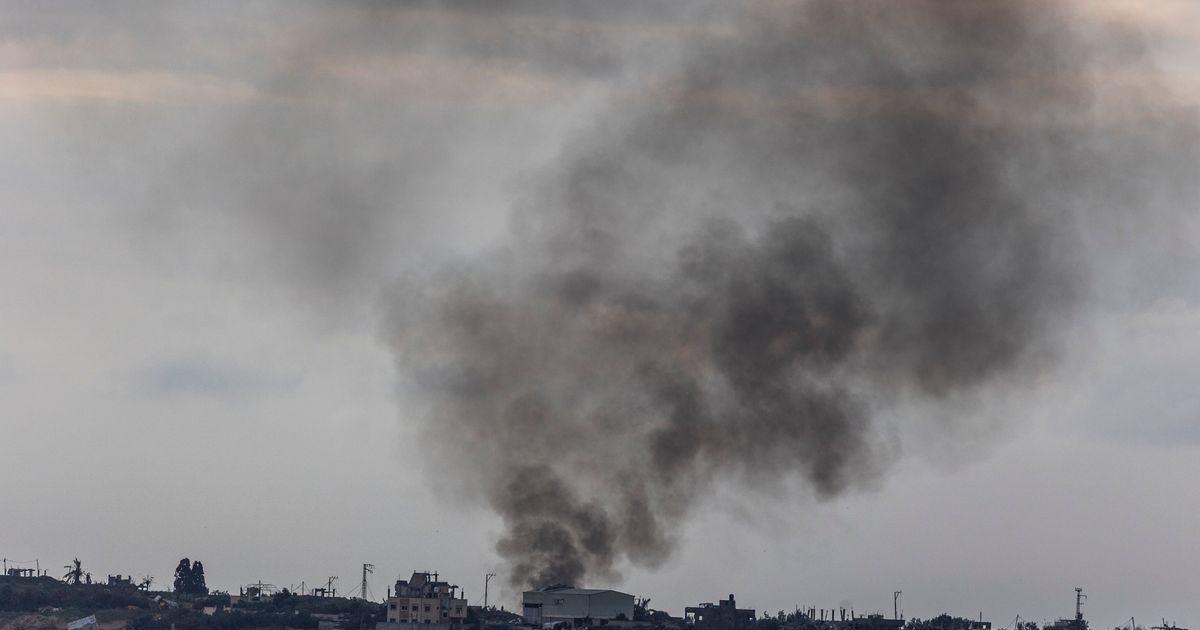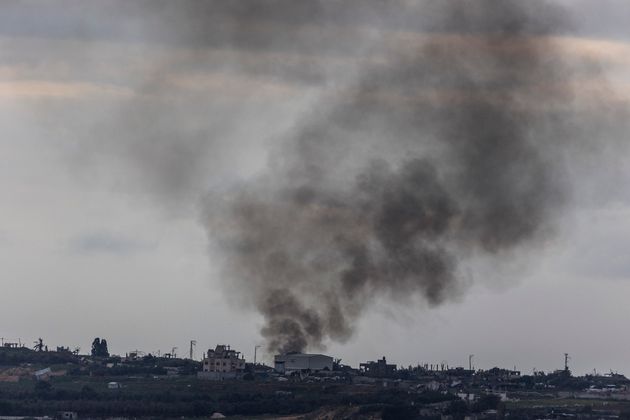The Israel-Hamas war has spilled out into the wider Middle Eastern region recently, with at least three areas now where violent skirmishes could escalate.
While the focal point of the crisis is still the Palestinian territory of Gaza, friction between Israel and its neighbouring nations have sparked fears that the whole region could be embroiled in war.
The EU’s foreign policy chief Josep Borrell has even warned that unless this war ends soon, “the entire Middle East might end up in flames”.
As the complex crisis is about to head into its third month, here’s a look at where hostilities have risen – and why.
Lebanon
According to Beirut, an Israeli drone strike targeted a Hamas office in the Lebanese capital on Tuesday, killing seven people.
The deputy leader of Hamas’ political bureau who was also involved Hamas’ military, Saleh al-Arouri, was killed.
However, Israel has not taken direct responsibility for the attack. Senior advisor to Netanyahu Mark Regev just referred to “whoever did this” and said it was “not an attack on the Lebanese state”.
Back in November, the Israeli PM Benjamin Netanyahu warned in November that Israel would “operate against Hamas leaders wherever they are”.
But, after Tuesday’s attack, he only described the move as a “surgical strike” against Hamas – and stopped short of actually taking responsibility for it.
It comes as tensions between Israel and the Lebanese militant group Hezbollah have been increasing for months.
Hezbollah, known to be sympathetic to Hamas, has been designated a terrorist organisation by Western countries, Israel, the Gulf Arab countries and the Arab League.
Hezbollah said that it was a “serious assault on Lebanon” and a “dangerous development in course of the war between the enemy and the axis of the resistance” which will “not go without a response or punishment”.
Lebanon’s PM, Najib Mikati, said the explosion was a “crime” which “aims to drag Lebanon into a new phase of confrontation with Israel” – but discouraged Hezbollah from responding themselves.
Former UK ambassador to Lebanon Tom Fletcher told the BBC this was a “moment of real jeopardy” as al-Arouri was a “big fish” and “taking him out in the heart of Hezbollah territory is a big deal”.
Some reports have suggested that Egypt, a key mediator in the Israel-Hamas negotiations along with Qatar, has suspended mediations due to the attack but there’s been no official confirmation.
Red Sea
The Red Sea shipping route is still too dangerous for many companies to use after a spate of attacks by Houthi rebels in Yemen who support Hamas – and have Iran’s backing.
The rebels claim to only aim to disrupt ships going to and from Israel, but some civilian vessels have been under threat.
The US also says Houthi rebels have fired two missiles at commercial vessels recently.
There is also a chance there global prices could rise in a few weeks because of the cost of re-routing vessels around the southern-most tip of Africa if the Red Sea becomes completely inaccessible.
Iran
Today’s unexplained explosions in the Middle Eastern country, which supports militant groups Hamas and Hezbollah, have raised further concerns that the crisis is going to escalate.
Explosions killed more than 100 people during a ceremony to mark the four year anniversary of the killing of an Islamic Revolutionary Corps general, Qassem Soleimani. He was assassinated by a US drone strike in Iraq in 2020.
There is no evidence yet to suggest Israel was behind these attacks, but as the BBC’s security correspondent Frank Gardner suggested, it will “inevitably raise tensions in the region”.
Iranian officials have also weighed in on the killing of the top Hamas official, blaming Israel for its “cowardly terrorist operations”.
Gaza
This is still the main focal point for the war and the death toll continues to rise.
According to the Hamas-run health ministry in Gaza, more than 22,000 people have been killed since October 7, when the war began.
Although some Israeli troops have been withdrawn from Gaza, the adviser to Israeli PM Benjamin Netanyahu, Mark Regev, suggested this did not mean the violence was winding down. He told Sky News on Tuesday that the war is “a marathon not a sprint”.
Comments from the Israeli finance minister Bezalel Smotrich, that emigration from Gaza needs to be encouraged so that Israeli settlers can return to the area and “make the desert bloom” have added to fears that the government wants all Palestinians to leave Gaza.
According to UN estimates, 85% of the Gaza population – 1.9 million people – have been internally displaced since the war broke out.
Meanwhile, Hamas is still holding more than 100 hostages in Gaza.
Hamas’ leader Ismail Haniyeh has said that the remaining captives taken in October will only be released under conditions set by the militants.
They have previously said no hostages will be released until the war ends, while Israel do not want a permanent ceasefire.
What else is happening?
Israel is contesting South Africa’s genocide accusation at the International Court of Justice.
Tensions remain high in the West Bank too, with the Palestinian president Mahmoud Abbas recently warning that the territory could “implode”.
EU foreign policy chief Josep Borrell called for other countries to step in to resolve the ongoing crisis.
Speaking at an event in Lisbon on Wednesday, he said: ”If this tragedy doesn’t end soon, the entire Middle East might end up in flames.”
Meanwhile, Turkey has arrested 33 people for suspected spying for Israel.
